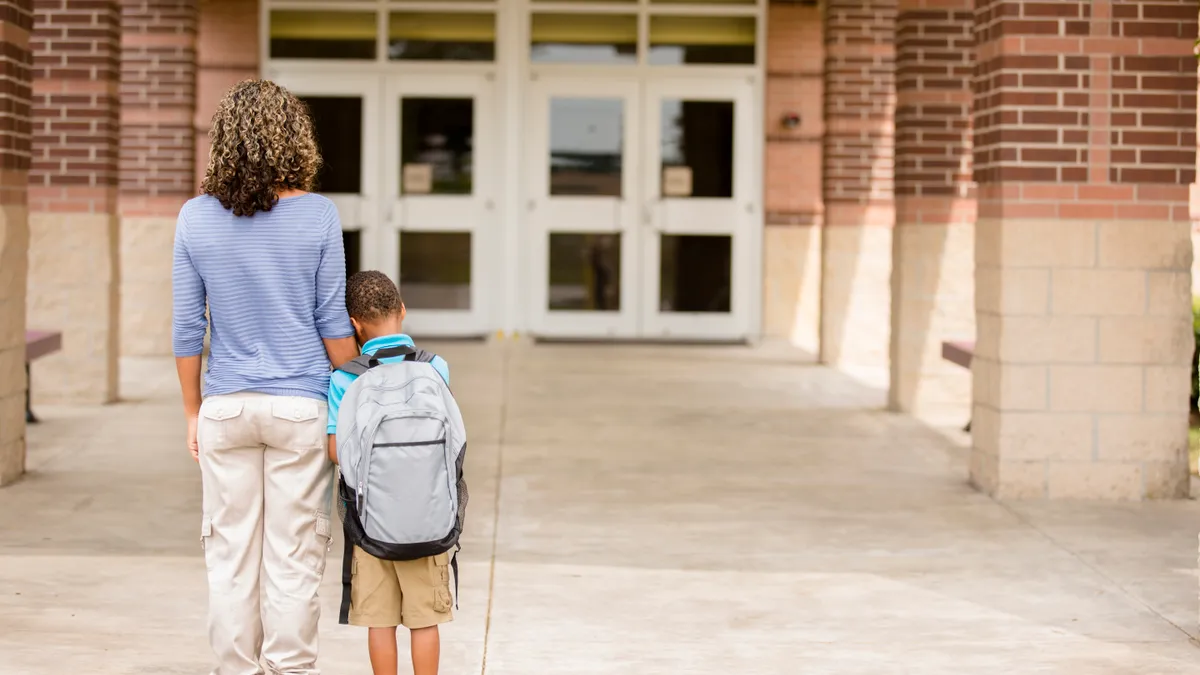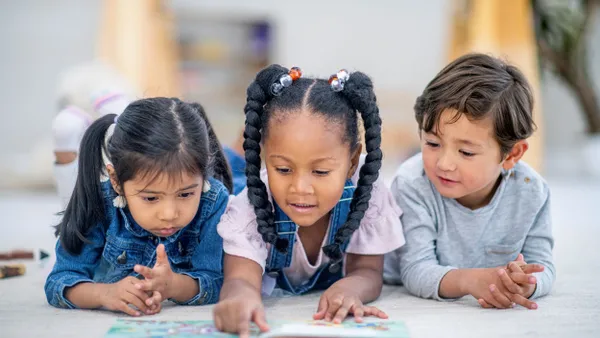The loss of parents or other primary caregivers — among the most tragic consequences of the COVID-19 pandemic for students — has sparked a need to provide bereavement support in schools.
The pandemic underscored the importance of supporting grieving children in school settings as well as in medical and behavioral health ones, said David J. Schonfeld, director of the National Center for School Crisis and Bereavement at Children’s Hospital Los Angeles, which coordinates the Coalition to Support Grieving Students.
More than 167,000 children in the United States — roughly 1 in 450 — lost at least one caretaker to COVID-19 as of December 2021, according to a report from the COVID Collaborative and Social Policy Analytics. Worldwide, an estimated 10.5 million children lost a caregiver or were orphaned due to the pandemic, with the greatest losses in Africa and Southeast Asia, according to a study published in September 2022 in JAMA Pediatrics.
“No child should grieve alone, and we should come together as a community and become better at supporting them,” Schonfeld said.
As schools continue developing strategies to help students who are grieving due to COVID-19 or other traumatic events, Schonfeld and other experts recommend the following five best practices.
Understand grief and bereavement
It’s essential to ensure school staff are supportive and empathic and that they provide accommodations where warranted, Schonfeld said. But bereavement shouldn’t be treated as an illness, because most people will at some point experience the loss of parents or caregivers, he said.
Scenarios where one-on-one counseling may be particularly beneficial include when a student’s grief is compounded by depression or substance abuse and when they belong to marginalized groups that experience more violence and loss. It’s also important to provide native language support for children who are more comfortable expressing grief in a language other than English, Schonfeld said.
Teachers should make temporary accommodations for grieving children, such as lightening their homework load or avoiding major assignments around the timing of memorial events, Schonfeld said. Schools can assign a staff member to examine the grieving student’s overall schedule and be mindful of things like the parent who used to drive them to activities no longer being there, he said.
Teachers should be cognizant of avoiding triggering lesson plans during class, such as Father’s Day activities when a child lost their father, or reading assignments that include topics like, say, suicide when a student is experiencing that particular trauma, Schonfeld said.
It's important to put in place a plan for grieving students, such as allowing them to safely leave the classroom if they feel overwhelmed or even placing a tissue box by the door, Schonfeld said. Everyday gestures like checking in and asking “How are you doing?” and “What can I help you with?” also make a big difference, he added.
Train all school staff
The pandemic prompted Dallas Independent School District to ramp up its efforts to offer programming and support for grieving students, said Tracey Brown, the district’s executive director of mental health services.
The district provided grief support training to all clinical staff and included it in professional development for teachers, Brown said. All of that was done in partnership with the Dallas-based Meadows Mental Health Policy Institute, she said.
“We make it a priority,” Brown said. “Our goal is to make sure we are constantly providing information and a deeper level of understanding of grief.”
Besides staffing enough clinicians to provide individual counseling for students, it’s important to empower all staff members to spot signs that students might be struggling with grief, Brown said.
“We need our teachers and staff to be the eyes and ears for us,” she said. “Many of our kids are coming to school daily struggling with grief and trauma for various reasons. They are just trying to figure out, ‘What do I do with this?’”
White Cloud Junior/Senior High School in Minnesota is among schools across the country that have joined the Grief-Sensitive Schools Initiative spearheaded by New York Life Foundation. The initiative provides free presentations for school staff and an array of videos and educational materials free to the public.
About two years ago, White Cloud used a $1,000 grant from the initiative to purchase materials aimed at enhancing its bereavement and other grief support efforts, said Kris Ruthven, a counselor at the school. The district bought books for students and families about loss, as well as tools like fidget toys and coloring books that can help students as they process grief, she said.
The district regularly shares articles about ways to help children after a parent or caregiver dies and how to discuss death and suicide. Counselors have also given “mini-lessons” on grief during study hall periods, Ruthven said.
Provide age-appropriate support
It’s important to tailor support to a student's developmental level, Brown said.
In elementary school, grief support includes teaching children how to build self esteem and how to ask for help, she said.
Younger children benefit from tools like coloring books, Brown added. “It’s about giving kids the language to express themselves appropriately.”
In middle and high school, staff should be on the lookout for poor coping strategies, which can result in risky behaviors such as drug use, Brown said. “The clinicians are there to engage those kids, teach them and educate them on how to take care of themselves and make healthy decisions that put them in the best possible level for learning.”
Clinicians can also help teachers create a classroom environment that allows students to take mental health breaks when needed, Brown added.
It’s important to remember, too, that students experiencing grief can affect others around them, Ruthven said.
“Whether it’s loss of a pet, the loss of a friend who moved away, or the loss of a loved one within the family … grief happens all the time, and in different varieties,” Ruthven said. “And that person’s loss triggers the memories of all the other people that have had losses. It’s a continuum.”
Leverage relationships with local partners
Dallas Independent School District partnered with local entities to help school clinical, counseling and social-emotional learning staff learn how to build trusting relationships with students, Brown said.
Additionally, the district is using an app called GreenLight Balance to develop a QR code students can scan to access grief-related support if they don’t want to go to a school-based adult, Brown said. The district is planning to offer grief support groups at all campuses, hopefully by fall 2023, to help students process their feelings and build trusting relationships with peers.
Even when students don’t discuss their loss or trauma, their behavior — like losing interest in certain activities or constantly being removed from the classroom — can point to their underlying grief, Brown said.
The role of school staff is to engage students, build a relationship, “and let them know that we are willing to talk to them and be there for them,” she said.
Educators, like anyone else, may be afraid of saying the wrong thing to someone who is grieving. It’s important to encourage people to break through that fear by helping them understand the benefits of acknowledging someone’s grief, even if words feel inadequate, Ruthven said.
Ensure staff have support, too
School staff will inevitably be grieving at times as well. In those cases, they should be encouraged to engage in self-care and to work through their own feelings of bereavement, Brown and Ruthven said.
For example, after the recent sudden death of a White Cloud staff member, White Cloud Public Schools brought in outside therapists to support employees affected by the loss, as well as additional staff so employees could take breaks when needed, Ruthven said.
The district also set up a quiet room where grieving people — whether staff or students — could find refuge and process their loss, with the help of a counselor if they wished, and with support tools such as music, writing and therapy dogs, Ruthven said.
“Staff wellness and adult wellness is vital,” Brown said. “If we are not well, it’s hard to encourage our kids to be well.”
Correction: A previous version of this article misstated a partnership behind the Grief-Sensitive Schools Initiative and the amount of a grant from the initiative to White Cloud Junior/Senior High School. The initiative is spearheaded by New York Life Foundation, and the grant was for $1,000.













